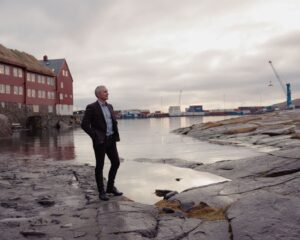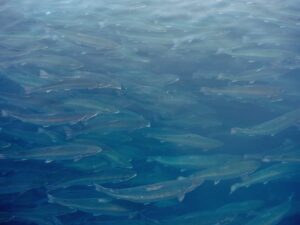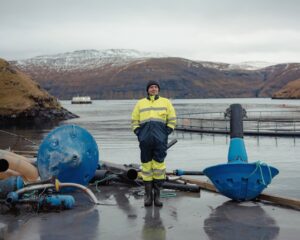
 news
news 
TORSHAVN, Faroe Islands — The Faroe Islands ‘ mere existence is a marvel. From the North Atlantic Ocean, high cliffs of snow-patched volcanic rock jutting out. Cliffs fall into the narrow fjords ‘ deep waters.
The isolated group of 18 small islands scattered between Iceland and Norway is known for a healthy population of puffins and annual hunts of whales. There is also a flourishing salmon industry in the semiautonomous Danish territory.
Technology among its 50,000 people is not a popular topic of conversation. Yet in recent weeks, in the global Cold War between the United States and China, the Faroe Islands have become a modern and unexpected battlefield.
The disagreement started as a result of a settlement. The Faroe Islands wanted to build a modern fifth-generation, the ultra-fast wireless network known as 5G. The jurisdiction decided to give the job to a hardware provider to create the new interface.
That was when the U.S. started to warn the archipelago nation not to grant a single corporation the contract: the Chinese telecommunications firm Huawei. American officials have said that Huawei is beholden to China for a long time and raises concerns over national security.
And officials from China became involved. Previously, a senior official of the Faroe Islands government was caught on tape saying the Chinese had agreed to improve cooperation between the region and China — as long as Huawei had the assignment of the 5 G network.
“Commercially, the Faroe Islands can’t be very valuable to Huawei or anyone else,” said Sjurdur Skaale, who serves the Danish parliament’s territories this week at breakfast in Torshavn’s capital. “There’s something else on the table that the Chinese and American embassies are competing over this as intensely as they are. It’s about something other than business.”

Every place is now too low to concentrate on the U.S. and China as they tussle about the technology’s potential. The Faroe Islands, whose access to the Arctic has increased strategic significance, are among countries across Europe was standing in the middle of the two superpowers over Huawei, the Chinese tech sector’s crown jewel.
American officials have been putting pressure on Britain, Germany, Poland, and others to follow their lead in blocking Huawei from emerging 5 G networks for more than a year. We claim that the Chinese Communist Party can use the organization to spy on or hack sensitive systems. Huawei denied it was supporting Beijing.
But if the nations of Europe side with Washington, they risk harming their economic ties to China, which has an increasing demand for German cars, French planes, and British pharmaceuticals.
Bardur Nielsen, the prime minister, has tried to defuse the crisis in the Faroe Islands. He said in a statement that his country was not lobbied or intimidated concerning the establishment of a 5 G network in the Faroe Islands by international authorities.”
The local telecommunications company, Foroya Tele, will make any decision to grant a contract to Huawei, he added.
In a statement, Foroya Tele said it is testing various technologies. A 5G network provider’s choice, he said, “requires considerable considerations given the scale and importance of the Faroe Islands investment.”
The debate about Huawei and 5 G is rooted more in salmon than in download speeds for the people of the Faroe Islands.
Salmon is vital to the economy of the region. About 90 percent of exports from the Faroe Islands are seafood, including salmon, mackerel, herring, and cod. Hundreds of salmon can be seen splashing within large netted circles in the surrounding waters, where they are being raised for meals in London, Moscow, New York — and, gradually, Beijing.
Salmon exports to China picked up after 2010. At the time, in response to the award of the Nobel Peace Prize to Chinese human rights activist Liu Xiaobo in Oslo, the Chinese government had slowed the purchase of the fish from Norway.


China currently accounts for about 7% of salmon sales in the Faroe Islands. This year, the Faroese government opened a Beijing office to broaden trade further.
Sales of salmon to Russia by the islands soared in 2014 after the European Union restricted what other countries could sell to Russia. These laws do not bind the Faroe Islands because they are not part of the European Union.
Faroe Islands salmon exports are forecast to reach $550 million this year, up from around $190 million a decade ago.
“This is Atlantic salmon’s den,” said Runi Dam, a local fisheries specialist, standing over giant pens loaded with about 15,000 salmon each. “We’ve got the perfect setting.”
Now, in the fight over the 5 G wireless network, the salmon business has become embroiled.
Carla Sands, America’s ambassador to Denmark, issued threats about Huawei to the public last month. Ms. Sands said in an opinion piece in the local newspaper of the Faroe Islands that if the firm was allowed to build the 5 G network, there might be “dangerous consequences.” If countries let Huawei in, she said, “they agree to work under the principles of Chinese Communism.”
In another interview with Danish Broadcasting this week, Ms. Sands accused the Nordic region’s Huawei executive of “working for the Chinese Communists,” who are “exporting their hacking, theft, and bribery around the world.”
Ms. Sands declined to be approached.
At the same time, at least twice in the past two months, China’s envoy to Denmark visited the Faroe Islands.
The Danish national newspaper, Berlingske, released this month the text of an audio recording in which a top Faroe Islands official summarizes one of the meetings. Herálvur Joensen, a former Faroese policy advisor, was caught on tape saying that China’s envoy wanted to obstruct a trade deal— and more fish profits— unless Huawei was used for the 5 G network.
“If Foroya Tele were to sign an agreement with Huawei, the doors would be open toA free trade deal with China, “he said. in the video. “If this is not the case, there will be no trade agreement.”
A Prime Minister spokesman said Mr. Joensen had not attended the Chinese ambassador’s meeting and was not available for an interview.